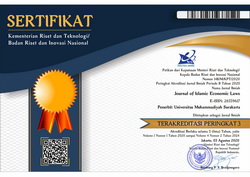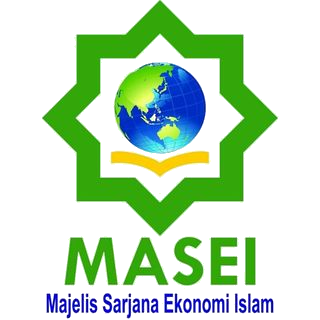Aims and Scope
Journal of Islamic Economic Laws (JISEL) aims to bridge interdisciplinary research that critically examines the intersection of Islamic law (shariah) and contemporary economic challenges on a global scale. JISEL seeks to foster scholarly dialogue that bridges classical Islamic legal doctrines with current developments in economics, finance, business, and public policy.
JISEL’s mission is to illuminate the role of Islamic legal thoughts in addressing practical economic issues and policy innovations within Muslim societies and beyond. We especially welcome manuscripts that develop empirical, analytical, or comparative perspectives and those that contribute original insights to both the theoretical foundations and practical applications of Islamic economic laws.
JISEL encourages high-quality, original manuscripts in English that advance global discourse and reflect diverse regional, disciplinary, and methodological perspectives. Published semi-annually (January & July), each issue features leading scholarship that shapes and responds to the evolving fields of Islamic law and economic policy.
The journal highlights, but is not limited to, the following areas:
- Empirical and doctrinal studies on muamalah (Islamic transactions) and their adaptation to modern financial practices
- Legal frameworks for Islamic banking, insurance (takaful), and reinsurance
- Halal industry governance, including halal certification systems and standards in international trade
- Regulatory analysis and policy innovation in zakat (almsgiving), waqf (endowment), and philanthropic financial management
- The role of Islamic law in microfinance, business innovation, and fintech for ethical and sustainable development
- Green supply chains and sustainability practices in halal industries
- Governance and legal innovation in halal tourism and Islamic hospitality management
- Socio-economic and legal determinants of compliance behavior in zakat, waqf, and other Islamic financial obligations
- Comparative studies on the integration of Islamic law within dual-legal systems, and its implications for socio-economic justice



















